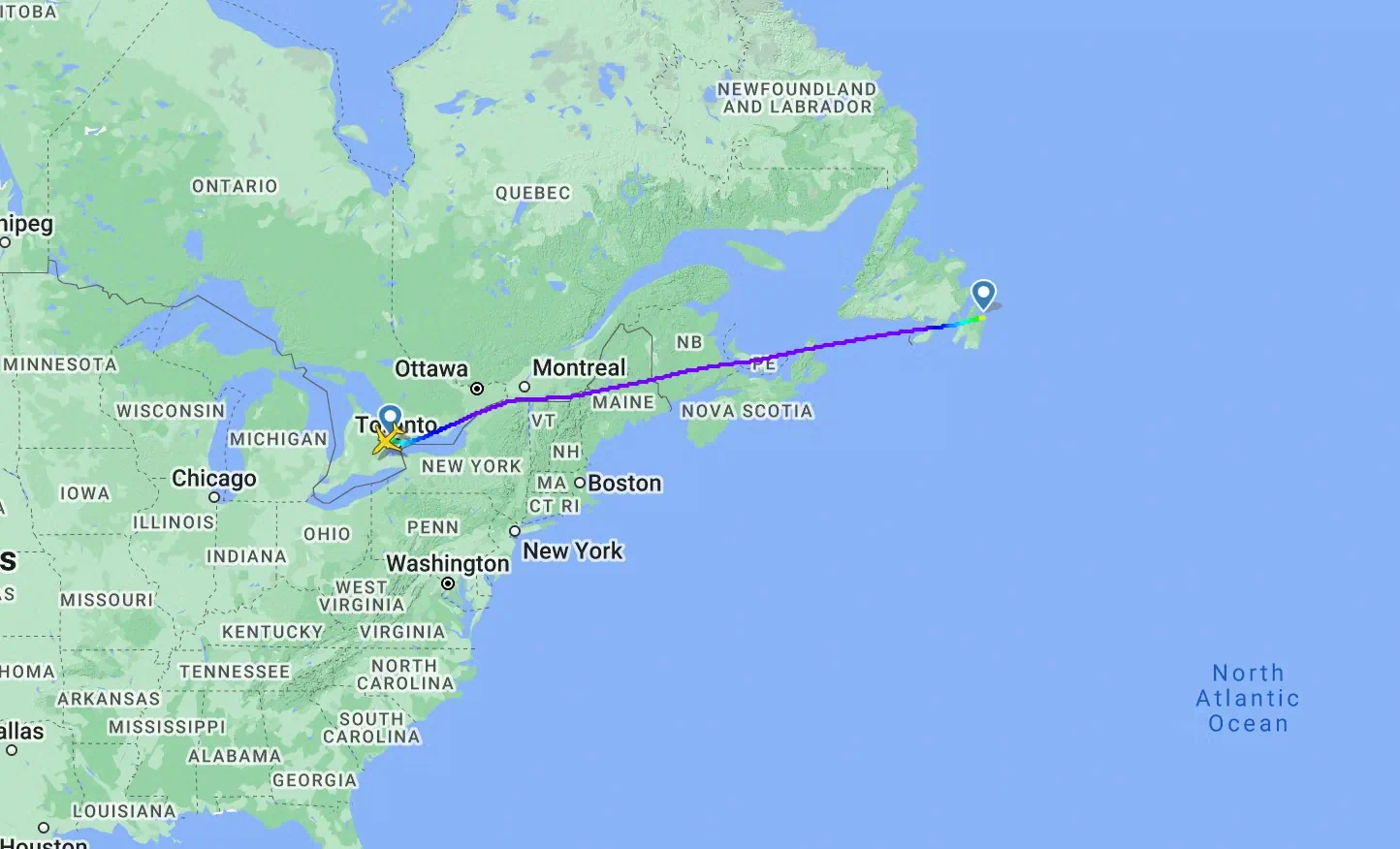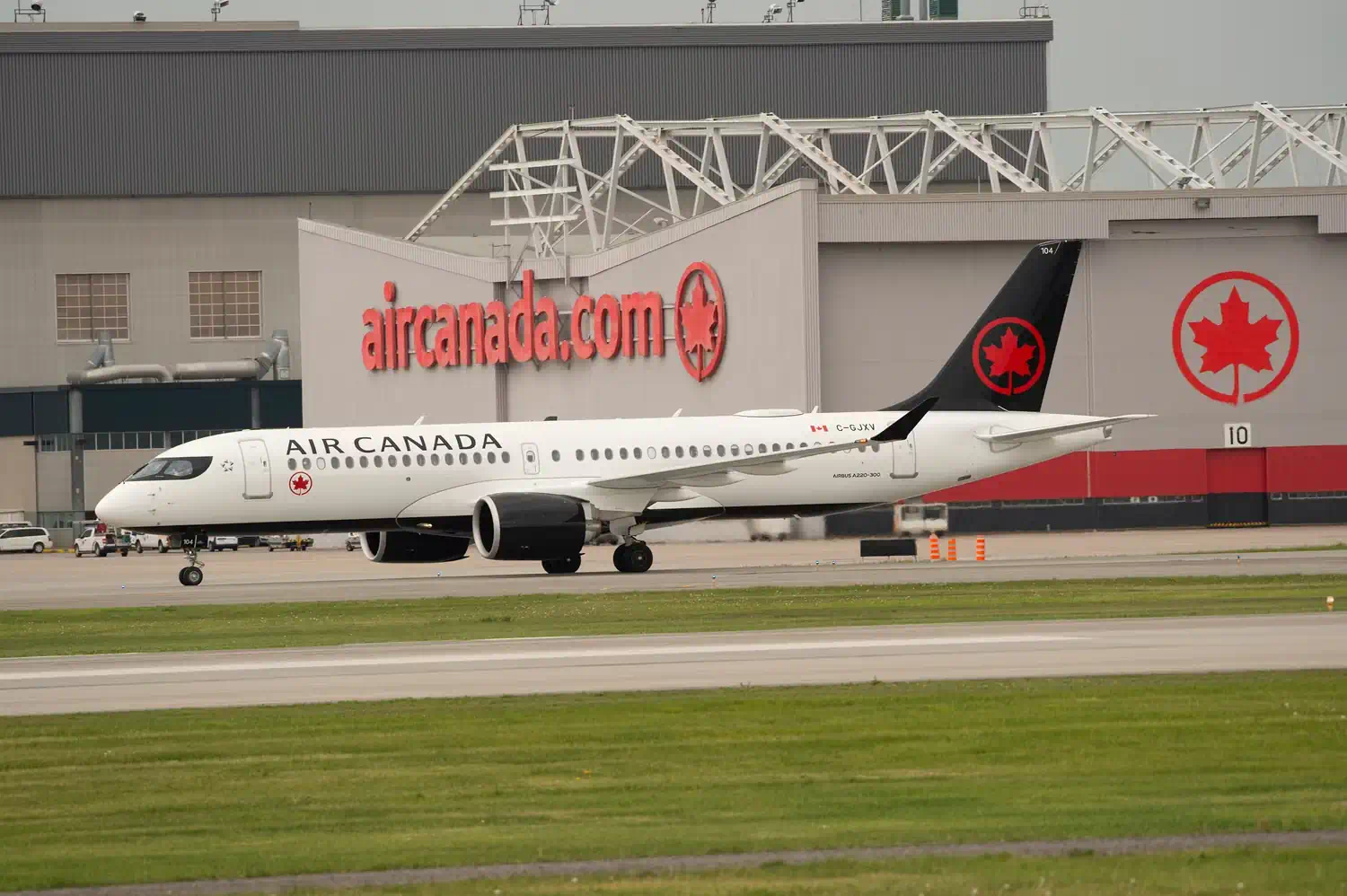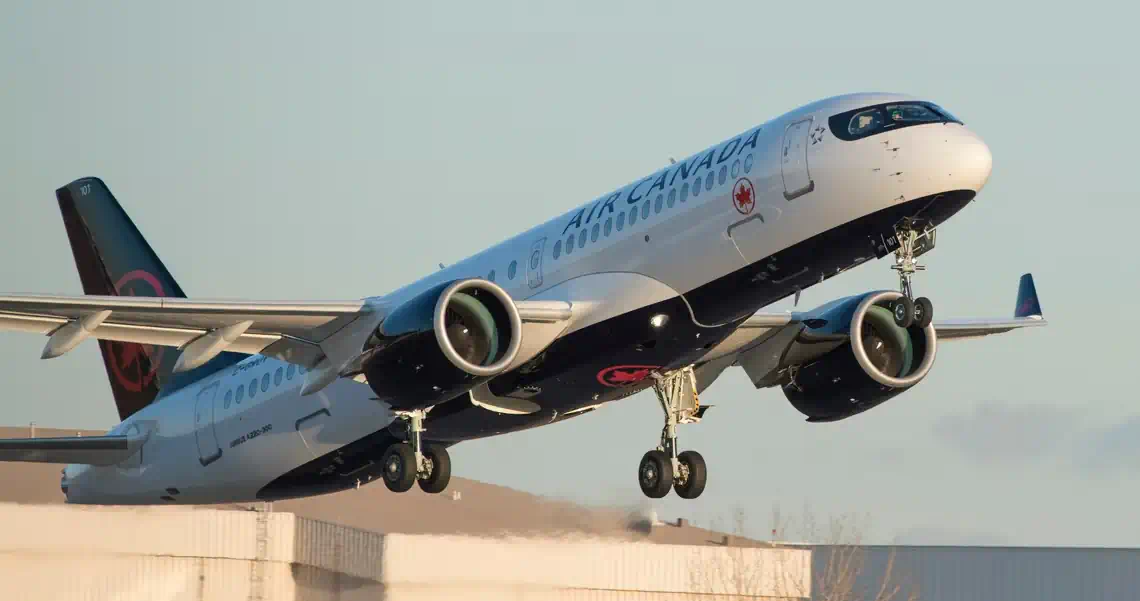The first officer of the Air Canada flight became unable to perform their duties on a flight from Toronto to St. John’s.
BY
CHRIS LOH
PUBLISHED 2 DAYS AGO
An Air Canada flight from Toronto to St. John’s (Newfoundland) operated by an Airbus A220-300 encountered trouble when the first officer became incapacitated. The June 7th incident did not result in a diversion and a safe landing was achieved with assistance from a special passenger.
Incident details
On June 7th, Air Canada flight AC692 took off from Toronto’s Pearson International Airport (YYZ) at 17:58. This departure was just over an hour late as the scheduled departure time was 16:50. Operated by an Airbus A220-300 registered C-GJXY, the aircraft was headed for St. John’s with 125 passengers and six crew.

As reported by The Aviation Herald, the first officer of the aircraft became incapacitated 77 minutes into the flight. The cause for incapacitation was not specified. Thankfully, a deadheading captain assumed the duties of the first officer, and the A220 continued to its destination to perform a safe landing about 90 minutes later.
“During the flight, the First Officer became incapacitated. A deadheading Captain assumed the crew members duties and the aircraft landed without further incident. Emergency Medical Services met the aircraft at the gate upon arrival.” -Canadian TSB
Get all the latest aviation news right here on Simple Flying.
What is deadheading?
While deadheading means the removal of fading or dead flowers from plants in the horticultural world, it has a completely different meaning for aviation. Indeed, deadheading in the aviation world refers to the practice of positioning company staff in the right place to begin their duties, with these employees traveling as regular passengers.
As noted by Aero Corner, deadheading will involve blocking specific seats on regular passenger flights for such crew members. These airline employees may travel in uniform, perhaps during a tight connection, but they may also wear civilian attire.

Aero Corner also highlights the major safety benefit of deadheading, saying:
“…if you are deadheading as a pilot, it is also possible that you will get asked to help in case one of the active pilots gets incapacitated. Even if you do not have the rating on that specific aircraft type, you could still be considered the best option to assist with radio communication, for example.”
While rare, the incapacitation of crew members has already occurred several times this year. And, in several cases, trained pilots traveling as passengers have been able to step in to fulfill the duties of incapacitated individuals. In March, we saw the first officer of an Air Transat A321 become incapacitated. However, a second officer was traveling onboard and was able to replace the first officer.
Days before the Air Transat incident, a Southwest Airlines captain had fallen ill and was unable to perform their duties. In this case, another pilot, traveling as a passenger, was available to step in. The individual was an off-duty, fully-licensed pilot for a different airline.
What do you think of this incident? Does this further discredit airline or aircraft manufacturer intentions for single pilot operations? Share your thoughts by leaving a comment!
Sources: FlightRadar24.com, The Aviation Herald, Aero Corner

